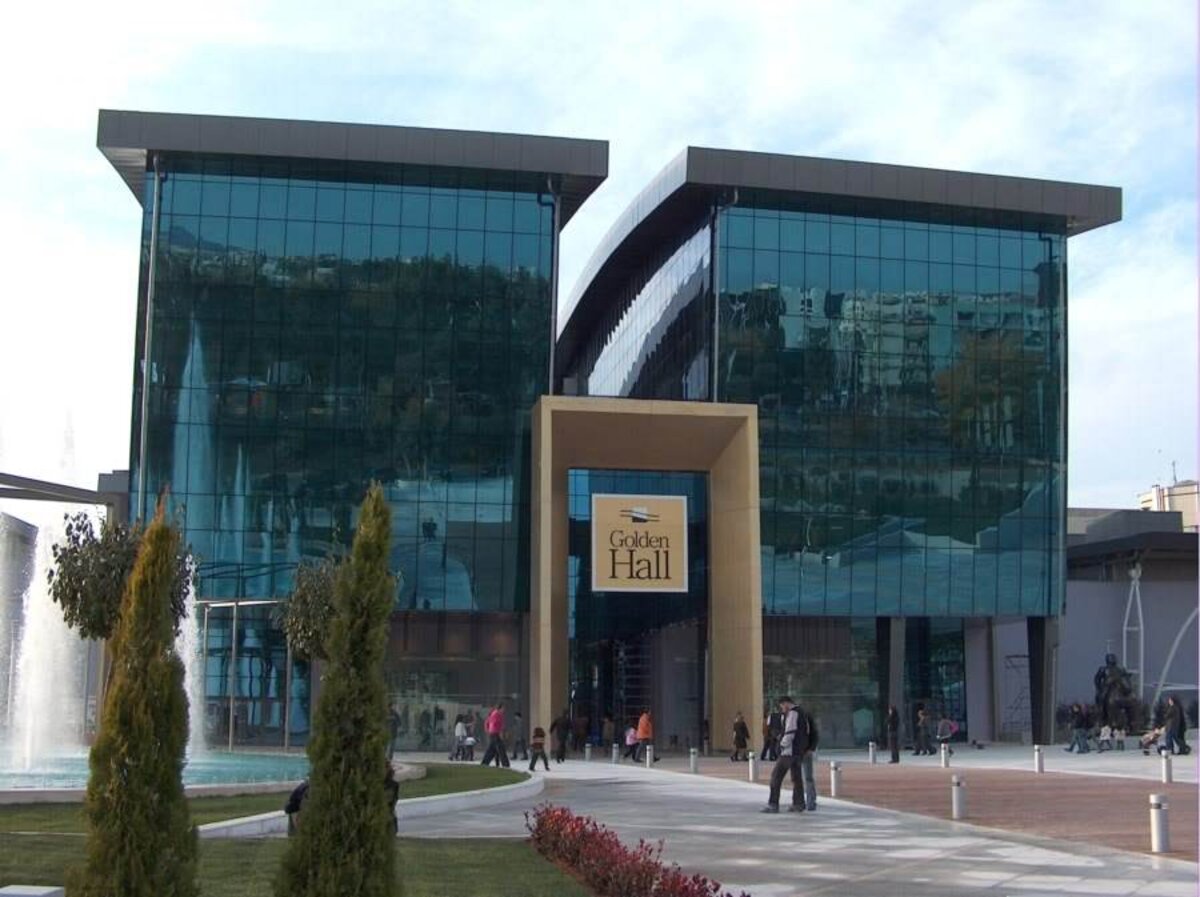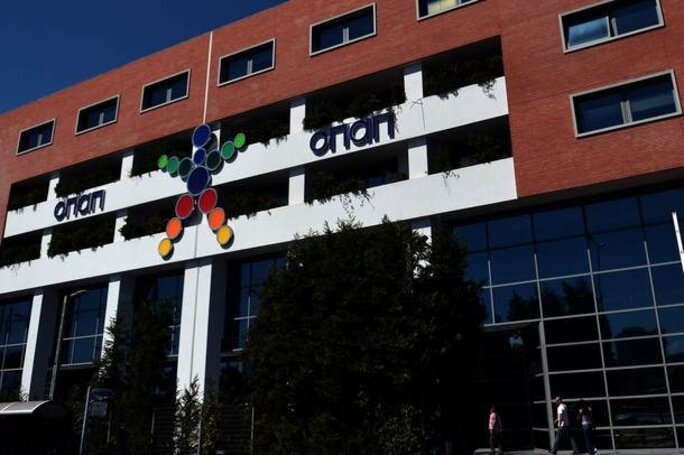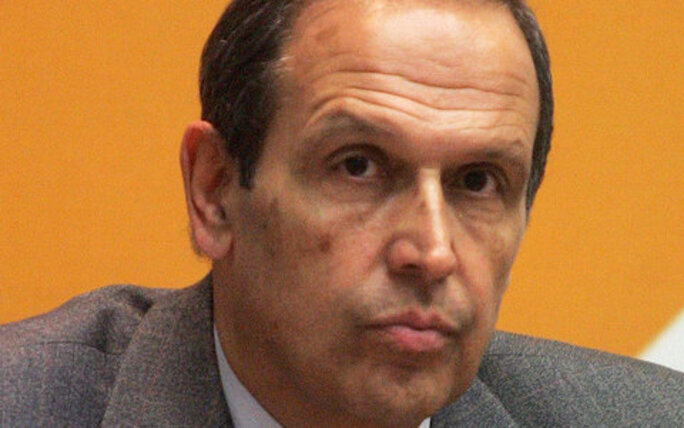An increase in charges and a fall in the quality of service. That is the scenario feared by those opposing the privatisation of the water companies servicing the Greek capital Athens and the country's second city Thessalonika. “Water is public property, it's not merchandise,” says musician Maria Kanellopoulou, a member of the Save Greek Water group which was set up last year to stop the sell-off of the companies EYDAP in Athens and EYATH in Thessalonika.
“We're not employed by these companies, but we're taking action because we think that water symbolises both the very essence of public property and also all that we are in the process of losing in Greece today: it's a question of the most fundamental of rights, that of access to water,” she says.
However, those handling the sell-offs will probably take no notice. They have a clear run; in 2011 all privatisations were handed over to an ad hoc structure that is called Taiped under its Greek initials though known in English as the Hellenic Republic Asset Development Fund or HRADF. This organisation was set up by the Greek government under pressure from the 'Troika' of the European Commission, the European Central Bank and the International Monetary Fund and has become the de facto owner of a vast portfolio that it has to sell, little by little, to investors.
Its objective? To pay off a part of the Greek state's debt by disposing of state-owned companies, either through outright sale or selling a stake in them, selling concessions to exploit commercial monopolies and selling land and buildings. On its own website it says: “The sole mission of the Hellenic Republic Asset Development Fund’s (sic) (HRADF) is to maximize the value to the Hellenic Republic from the development and/or sale of assets.”
In all, more than 40 state-owned properties, land and utilities are currently on its sell-off list, a list that is destined to grow longer and which has already seen additions in recent months. Yet the financial receipts from the privatisation programme will not go far in tackling the country’s vast debt, which stands at more than 300 billion euros. HRADF is now banking on 9.5 billion euros worth of sales from here until 2015, against the 19 billion euros that was still officially the target just a few months ago. In fact the the initial objective when the privatisation programme was announced by representatives of the Troika during a visit to Athens in February 2011 was 50 billion euros.
The reality is that with an economy in full recession - for the sixth consecutive year – Greek enterprises are not worth a great deal and the government is not in a strong bargaining position. But in any case, is the money that it brings in really the main aim of the privatisation programme? When Mediapart visited HRADF back in October its officials said that the aim of the plan was “to completely transform the Greek economy”. One official added: “In fact, it doesn't what money the sales generate. It's not so much about collecting money as liberalising the economy.”

Enlargement : Illustration 1

Indeed, the state failed to raise the three billion euros that it was supposed to collect from its sell-offs in 2012. Only two deals were finalised, raising a total of 271 million euros. One was the concession for the Golden Hall shopping centre in Athens, awarded to Greek company Lamda Development, a market leader in south-east Europe in the building sector. The other was the sale of the company that runs the national lottery, sold to a Greek-Italian consortium.
In 2013 the pace of privatisation should quicken. In January the New York investment fund NCH Capital snapped up the concession to develop the coastal resort of Kassiopi on the island of Corfu. The news came as little surprise, as this major investment fund – one of the first to invest in Russia and Eastern Europe after the collapse of the Soviet bloc and which today has 21 subsidiaries around the world – sent two of its own subsidiaries to compete for this concession.
NCH Capital is also among the retained bidders for another coastal holiday site concession, this one at Afantou on the island of Rhodes, which covers 1.8 million square meters (444 acres) including an 18-hole golf course. Another area of valuable land up for grabs is at Elliniko, in the south-west suburbs of Athens. HRADF will choose between Greek, Indian and British bidders later this year. The zone, which is destined to become a luxury residential and tourism development, includes the former international airport and many of the stadia built for the 2004 Olympic Games staged in Greece.
Luxury tourist destination

Enlargement : Illustration 2

The privatisation of the gas group DEPA/DESFA is also close to being finalised. Unsurprisingly there has been considerable interest from major Russian groups; Gazprom and Negusneft, a subsidiary of Sintez, are both among the final bidders. Others include SOCAR, Azerbaijan's state oil company, and two Greek consortia. Finally, a 33% stake in the state's ownership of the lucrative lottery and sports betting monopoly the Greek Organisation of Football Prognostics or OPAP has just been sold to the Greek-Czech investment fund Emma Delta. The final purchase price has not yet been disclosed, but the Greek authorities had rejected an earlier bid of 622 million euros as being too low. The bidding process had attracted strong criticism from opposition politicians who denounced irregularities in HRADF's selection process.
The purpose behind the sale of vast tracts of land and the passing of so-called fast-track laws to circumvent Greece's cumbersome bureaucracy is clear and was signposted by HRADF in a document it published in mid-November. And that is to make Greece a luxury tourist destination attracting wealthy visitors and customers from Russia, China, India, Saudi Arabia, South America and so on.
But local people have not given up fighting against these projects. The mayor of Corfu is challenging the sale of the Kassiopi coastline and has lodged an appeal with Greece's highest administrative court the Council of State. The sale is being carried out under a new procedure designed to favour the sale of large areas of public land by grouping smaller plots into one large one. Yet, according to the island's mayor, several of the plots concerned are forest or coastal areas which, it is argued, means they cannot be sold off in this way.
According to the opposition newspaper Eleftherotypia this sale will also fetch much less than forecast: 23 million euros rather than the 50 million euros originally hoped for. The mayor of Elliniko and a local residents' action group have also lodged an appeal with the Council of State to challenge the transfer of land from the suburb to the body in charge of privatisation.
Nonetheless, the sell-off process is continuing, and in addition to the privatisations the state is holding high-level meetings to attract extensive inward investment. The right-wing prime minister Antonis Samaras has met a large number of company bosses in recent months, both in Greece and abroad. In February he met President François Hollande, who is very keen to promote French interests in Greece. A month earlier he had gone to Qatar where the setting up was announced of a Qatari investment fund aimed at small and medium-sized Greek businesses. The vice-president of Gazprom Alexander Medvedev has also met Samaras at the prime minister’s official residence in Athens, Maximou Mansion.
For his part, the minister of development Kostis Chadzidakis has met the bosses of numerous German companies established in Greece. Traditionally the major investors in the country have tended to be the Germans, French and British but, if one gives credence to their expressions of interest in investing in Greece in recent months, the investors of the future are more likely to be Chinese, Russian and Qatari. For example, the minister of finance Yannis Stournaras last month met representatives of two Chinese investment funds, Shenzhen Airport and Friedmann Pacific Asset Management, interested in the future sale of Athens International Airport.
In the last two months a string of invitations for bids have been issued. One involves the Hellenic Horserace Betting Company or ODIE in which the French betting agency PMU has expressed an interest, according to the pro-government newspaper Ta Nea. A second relates to the development of a large tourist beach in an hotel zone on Chalcidice, one of the peninsulas in the north of Greece that is still relatively untouched. A third concerns the vast and luxurious Astir Palace resort complex and its marina on the peninsula of Vouliagmeni, one of the most expensive stretches of land in the Athens area. Finally, there has been an invitation for bids for 28 Greek state properties as well as six buildings abroad, including an eight-story office building in Brussels.
A Greek El Dorado?
The international public relations firm Hill + Knowlton Strategies has recently begun working alongside HRADF from its Brussels office. The PR company proudly says that it works with the world's biggest brands and with half of the Fortune Top 500 world companies. Yet the agency charged with Greece's privatisation programme has an uphill job in convincing public opinion about what it is doing, and for the moment it appears in particular to be under political pressure.
Key personnel have departed: having changed its managing director last summer, the fledgling organisation has seen a number of resignations among advisers and members of its board of directors, and it has just come under the control of a new president Stelios Stavridis. His predecessor Takis Athanasopoulos left after being charged with breach of duty while working as chief executive of the state electricity utility DEI in 2007, for commissioning a loss-making power plant in central Greece in 2007. He denies the charge. DEI, the Greek equivalent of French energy giant EDF, is also on the list of state enterprises to be privatised.

The new HRADF boss Stelios Stavridis came directly from EYDAP, the Athens water company being privatised, where he had been in charge for only three months after the departure of its former chief executive officer Nikolaos Bardis. Stavridis is a true product of Greek capitalism, having worked for the country’s biggest firms; he led the privatisation of the cement firm Aget Iraklos at the start of the 1990s, which passed through several hands before being swallowed up by French group Lafarge. But he also has a political background and at the last elections in May 2012 he was head of the list for neo-liberal party Drasi though Stavridis is since reported to have given his support to the governing centre-right party New Democracy.
“This privatisation process is hopeless,” says an official who was close to the sell-off procedure. “Nothing has changed. The appointments at the higher levels smack of cronyism, people's abilities don't matter.” In relation to the sell-off of the EYATH water company the official criticises the way he says the invitation to bid was tailor-made for the entrepreneur George Bobolas, a leading figure in the Greek construction industry and also a media baron, who is still well-placed to get public works contracts thanks to his political contacts.
“Moreover, EYATH is a healthy and profitable enterprise that makes 25 million euros in profits a year!” says the official. “Why should one simply allow these results to be swallowed by a large group that will absorb it and then suck it completely dry?” There is an extra incentive to buy this water firm; for whoever wins the EYATH bid will be best-placed to pick up the Athens water company EYDAP and its 4.5 million customers.
So is Greece in the process of becoming an El Dorado for entrepreneurs? The prime minister recently said that he was in favour of lowering taxes for companies and the introduction of a single rate tax of 15%. It should be noted that as a result of the measures taken over the last three years labour costs have shrunk. According to the EU statistical agency Eurostat the average annual cost of an employee (salary plus employer contributions) was 23,356 euros in Greece in 2012 (compared with 47,951 euros in France), down from 27,336 two years earlier. With the minimum wage now frozen at 580 euros a month gross (512 euros for those under 25) and collective agreements also frozen, with the unions having failed to counter the challenge to social rights and with a jobless rate of 26%, Greece seems like a godsend for investors. That is without taking into account the country's geographical position as a crossroads, the gateway into markets in the Balkans and more generally the rest of Europe.
The tobacco firm Philip Morris announced in February that for a three-year period it would buy half of all the country's tobacco production while the Anglo-Dutch consumer goods group Unilever has said it will transfer a part of its manufacturing to Greece. Then came one of the more significant developments of the last few weeks with the news of an agreement between the American computer firm Hewlett Packard, the Chinese shipping group Cosco and the Greek authorities signed on 1st March in Cosco's offices in the port of Piraeus in which it has had a 50% share since 2008.
Under the deal Hewlett Packard agrees to use Piraeus as its main distribution hub for central Europe, the Middle East, North Africa, the eastern Mediterranean and eastern Europe. At the same time a new 17km section of railway track connecting Piraeus with the main European freight network was completed. Under a new Greek law that was voted through shortly before the deal was signed, foreign companies who, like Hewlett Packard, use the port to transport their merchandise to other parts of Europe, will be exempt from VAT if the value of their goods exceeds 300 million euros a year.
---------------------------------------
English version by Michael Streeter


